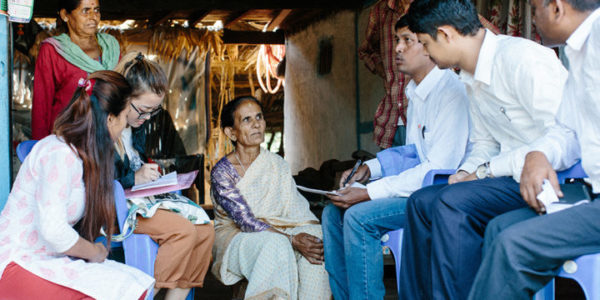12 November 2018 · Global Partnership for Zero Leprosy
Highlights from COR-NTD
Collaborating with NTD partners to define research priorities
The Global Partnership for Zero Leprosy had a strong presence at the recent annual meeting of the Coalition for Operational Research on Neglected Tropical Diseases (COR-NTD). COR-NTD is a coalition of researchers, donors, and program managers who meet every year to identify and refine key research priorities needed to achieve the World Health Organization’s goals for control and elimination of NTDs.
The leprosy community was well-represented, with two breakout sessions and a closing presentation. Ann Aerts, Head of Novartis Foundation, noted: “The commitment to zero leprosy was strongly felt throughout the COR-NTD conference, where we joined our partners and friends from the NTD community to align on new research and strategies that can accelerate the partnership’s goal of Zero Leprosy.”
The commitment to zero leprosy was strongly felt throughout the COR-NTD conference.
LPEP session, October 26

On October 26, Arielle Cavaliero, of the Novartis Foundation and leadership team member, and Peter Steinmann, of the Swiss Tropical and Public Health Institute, led a session on leprosy post-exposure prophylaxis (LPEP). Arielle reviewed the results of the LPEP program, which confirmed the feasibility of post-exposure prophylaxis in eight different countries. Two upcoming studies will further explore the effectiveness and potential of the PEP platform.
Wim Van Brakel, of Netherlands Leprosy Relief, also presented on the upcoming PEP++ program, which will deliver multiple doses of rifampicin and moxifloxacin to contacts of persons with leprosy. Epco Hasker, of the Institute of Tropical Medicine in Antwerp, described the upcoming PEOPLE trial, a cluster-randomized trial of PEP for leprosy in the Comoros and Madagascar. In addition to these presentations on chemoprophylaxis, Steve Reed, of the Infectious Disease Research Institute, described research on leprosy vaccines, which could be used for post-exposure immunoprophylaxis. Finally, David Blok, of Erasmus University, shared new insights from epidemiologic models on different approaches for leprosy control.
Research Agenda session, October 27
Fareed Mirza, of the Novartis Foundation and chair of the Research Agenda Working Group, and David Addiss, of the Task Force for Global Health and secretariat advisor, co-chaired a session in which the facilitators of the working group presented the initial findings for their subgroups. These sub-groups addressed leprosy diagnostics, vaccines, PEP, stigma, disability, operational research, digital technology, and epidemiologic modeling. Each facilitator presented a short summary of what is known about the subject, the knowledge gaps, and research priorities. These presentations were followed by a rich discussion with members of the broader COR-NTD community.
Cross-cutting issues
Several priorities for leprosy research, described by the working group facilitators, also emerged as priorities for other NTDs during the COR-NTD meeting. These included: 1) new mapping and sampling techniques for “hot spots” of disease that are infrequent and focal; 2) improved diagnostic tests; and 3) improved epidemiologic models that can be used for predicting the impact of different strategies and for advocacy.
At the closing plenary session of the COR-NTD meeting, a synopsis of the process and preliminary recommendations of the Research Agenda Working Group was presented. The COR-NTD meeting provided opportunities to highlight the Global Partnership for Leprosy and to exchange ideas and insights with researchers and program managers working on other NTDs. These shared insights can help open the door to new ideas, further innovation, and collaborative funding.